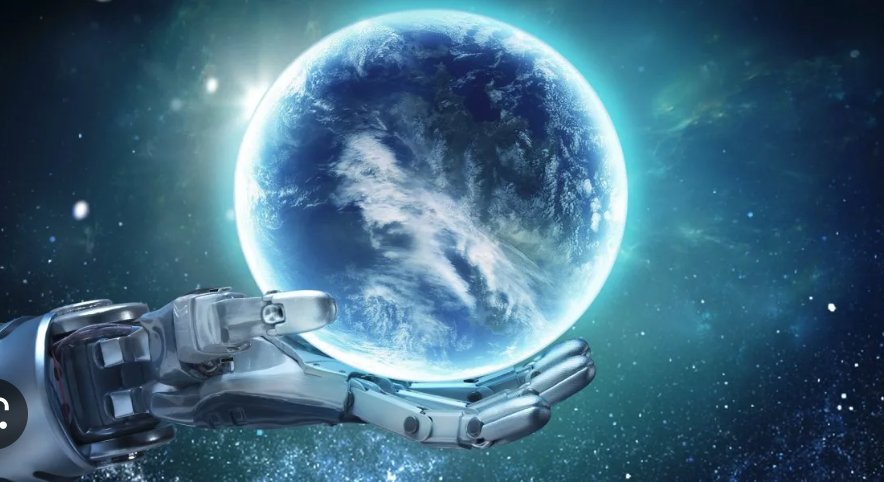“The future of humanity is in our hands – let’s explore the possibilities of AI!”
Introduction
The possibility of artificial intelligence (AI) robots and computers taking over the world has been a popular topic of discussion for decades. There are many different opinions on the matter, ranging from those who believe that AI robots and computers are inevitable and will eventually take over, to those who think the idea is far-fetched and will never happen. In this article, we will explore both sides of the debate and discuss the implications of AI robots and computers taking over the world.
The Pros and Cons of AI Robots and Computers Taking Over the World.
The prospect of artificial intelligence (AI) robots and computers taking over the world has been a source of great debate and speculation for some time now. Proponents of this development claim that AI machines could bring about a new era of unprecedented economic growth, increased efficiency, and technological progress. However, there are also those who are skeptical of the consequences of AI robots and computers taking over the world, citing potential risks and drawbacks. In this essay, we will explore the pros and cons of AI robots and computers taking over the world, in order to determine the potential implications of such a shift.
One of the primary advantages of AI robots and computers taking over the world is the potential for increased efficiency and productivity. AI machines are capable of performing tasks quickly and accurately, with little to no human intervention. This could lead to a surge in productivity and efficiency, as AI robots and computers are able to work around the clock without becoming fatigued. Furthermore, AI machines are also more adept at handling complex tasks, meaning that they could potentially be used to complete more intricate and time-consuming tasks than humans could.
On the other hand, there are also a number of potential drawbacks to AI robots and computers taking over the world. For one, the introduction of AI machines could lead to job losses, as many tasks that were previously done by humans could be taken over by AI machines. Additionally, there are also concerns about the security of AI machines, as they could potentially be vulnerable to hacking and other malicious attacks. Finally, there is also the potential for AI machines to become too powerful, as they could potentially outpace humans in terms of intelligence and capabilities.
In conclusion, it is clear that there are both advantages and drawbacks to AI robots and computers taking over the world. While AI machines could bring about increased efficiency and productivity, there are also potential risks and drawbacks that need to be considered. Ultimately, the decision of whether or not to pursue this path should be carefully weighed and analyzed before any action is taken.
How Will AI Robots and Computers Change Human Life?
The advent of Artificial Intelligence (AI) robots and computers has created a stir in the technological world and has caused people to ponder the implications of their use. While these robots and computers have the potential to offer many benefits to humanity, they also have the power to drastically alter the way we live our lives.
One of the most profound ways that AI robots and computers could change human life is by altering the job market. AI robots could replace many of the jobs currently done by humans, such as in manufacturing, service, and transportation. This could lead to an increase in unemployment and a decrease in wages for those who are employed in those sectors. Furthermore, by eliminating many of these positions, the ability for individuals to earn a steady income may be greatly diminished.
Another way AI robots and computers could change human life is by increasing the amount of automation and mechanization in everyday tasks. This could lead to an increase in efficiency and accuracy in the completion of certain tasks. However, it could also lead to a decrease in human creativity and problem-solving skills. As machines become increasingly capable of completing tasks, humans may become less inclined to use their own mental faculties to solve problems.
Finally, AI robots and computers could increase the amount of data available to humans. This could lead to major advances in medical technology, as well as the ability to make more informed decisions based on processed data. However, it could also lead to a greater risk of data breaches and invasion of privacy. As more data becomes available, the chances of someone using it for malicious purposes increases exponentially.
In conclusion, the introduction of AI robots and computers into our lives could lead to both positive and negative changes. While these robots and computers could improve the efficiency of many tasks and provide access to unprecedented amounts of data, they could also lead to job losses, a decrease in human creativity, and a greater risk of data breaches. It is therefore important that we consider the implications of our increasing reliance on AI robots and computers before we fully embrace them.
Can AI Robots and Computers Become Safer and More Beneficial to Society?
The rise of artificial intelligence (AI) has raised a multitude of ethical and policy questions. AI robots and computers have the potential to revolutionize everyday life and to become safer and more beneficial to society, but there is a valid concern about their potential for misuse. In order to maximize the positive potential of AI, its development must be guided by ethical principles and regulations.
AI technology is developing rapidly, and in many cases, it is difficult to anticipate the implications of its use in the future. Despite this, there are several steps that can be taken to ensure that AI is used ethically and responsibly. Firstly, developers of AI robots and computers should adhere to the principles of transparency, accountability, and fairness to ensure that the technology is not misused. This means that AI should be developed in an open and collaborative way, with full disclosure of its capabilities and limitations. Furthermore, AI should be designed to adhere to a set of ethical principles, such as respect for privacy and the avoidance of bias.
Additionally, regulations should be imposed to ensure that AI robots and computers are used safely and responsibly. This could involve government oversight, such as the development of ethical guidelines for the development and use of AI. Additionally, legal frameworks should be developed to ensure that AI is used in accordance with existing laws and regulations.
Ultimately, it is possible for AI robots and computers to become safer and more beneficial to society, provided that their development is guided by ethical principles and regulations. Adherence to these principles will ensure that AI is used responsibly and that its potential for misuse is minimized.
What Are the Ethical Implications of AI Robots and Computers Taking Over the World?
The ethical implications of artificial intelligence (AI) robots and computers taking over the world are immense, and must be considered with the utmost gravity. AI technology has the potential to revolutionize the way humans live, interact, and work, and thus its implications must be weighed carefully.
The most obvious ethical implications of AI robots and computers taking over the world relate to the potential displacement of human labor. AI technology could replace human workers in many industries, creating a situation where humans are no longer needed in order to complete certain jobs. This could lead to massive unemployment, with its associated negative implications such as poverty, social unrest, and psychological distress. The ethical implications of such a situation must be considered, as it would have a significant impact on the lives of many people.
Another ethical issue that arises from AI robots and computers taking over the world is the potential for them to gain autonomous control. If AI technology is allowed to develop to the point where it is able to make autonomous decisions, then there is a risk that it could take control of our lives, making decisions for us without our input. This could have disastrous consequences, as AI technology could have far-reaching implications for our freedom and autonomy.
Finally, there is the issue of privacy. AI technology has the potential to access and store vast amounts of personal information, and with it the potential to manipulate and control individuals. This could lead to a situation where our privacy is completely eroded, with AI technology having an unprecedented level of control over our lives. The ethical implications of such a situation must be considered very carefully, as it could have serious implications for our right to privacy and autonomy.
In conclusion, the ethical implications of AI robots and computers taking over the world are immense and must be considered with great care. The potential displacement of human labor, the possibility of AI taking autonomous control, and the threat to our privacy are all serious issues that must be addressed in order to ensure that the development of AI technology is ethical.
What Are the Economic Impacts of AI Robots and Computers Taking Over the World?
The economic impacts of artificial intelligence (AI) robots and computers taking over the world have been the subject of much debate. On one hand, some argue that AI has the potential to revolutionize the way we do business and create new economic opportunities. On the other hand, others point to the potential risks of automation, such as job losses, income inequality, and a decreased need for human labor.
The introduction of AI into the workplace could have a profound effect on the global economy. As AI-powered robots and computers become more sophisticated, they are able to take over more mundane and repetitive tasks that previously required the assistance of humans. This could lead to a decrease in the demand for human labor, resulting in job losses and decreased wages for those who are still employed. Furthermore, automation could lead to greater income inequality, as those who can afford to buy the latest AI technologies are disproportionately able to benefit from them.
In addition, automation could lead to a decrease in productivity and economic growth. AI robots and computers are generally unable to innovate in the way that humans can, and so the lack of new ideas could lead to a slowdown in economic development. Furthermore, the lack of human involvement in decision-making processes could lead to a decrease in flexibility and responsiveness to changing economic conditions.
Overall, while AI has the potential to revolutionize the way we do business and create new economic opportunities, it also carries with it some significant risks. The introduction of AI into the workplace could lead to job losses, income inequality, and a decrease in productivity and economic growth. It is therefore essential that governments and businesses take steps to ensure that the benefits of AI are fairly shared and that the risks are addressed.
Conclusion
Ultimately, the answer to this question depends on how AI and computers are used in the future. While it is possible that AI robots and computers might become too powerful if not managed properly, it is also likely that people will continue to play an integral role in managing and controlling these technologies. As AI and computers become increasingly sophisticated, it is important that safety and security measures are put into place to ensure AI and computers are used responsibly and ethically.


